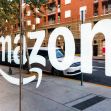Amazon and popular Italian fashion firm Salvatore Ferragamo have jointly filed suits against several entities and individuals for selling counterfeit goods - specifically, knockoff Ferragamo belts on the online retailer's website. The lawsuits were filed in the U.S. District Court for the Western District of Washington.
The lawsuits target three entities and four individuals. Court documents indicate that four of the defendants are based out of China. The other three are either in China, North Carolina, or California. Other defendants are named in the lawsuit, but their whereabouts are unknown.
According to the lawsuit, the individuals and entities are accused of selling the counterfeit goods knowingly and using Ferragamo's registered trademark without proper authorization. This violation is not only illegal but goes against Amazon's policies and Salvatore Ferragamo's intellectual property rights.
Amazon Crackdown on Counterfeit Goods
Amazon has a strict policy against counterfeit goods being sold on its website. In 2019, the company set aside over 500 million dollars to combat the issue. Efforts included enhancing the vetting process of sellers as well as using brand protection tools such as brand registry, transparency, and project zero. Anyone can sign up as a seller, but not anyone can sell brand-name goods unless they are an authorized retailer.
Amazon's efforts were followed by the online retailer's launch of the Counterfeit Crimes Unit in 2020. This global team’s mission includes identifying sellers who list counterfeit goods and directing their information to the proper law enforcement so that they can be held accountable.
Dharmesh Mehta, the Vice President for the Customer Trust and Partner Support of Amazon explains, “We do not allow counterfeit products in our store, and we have made it crystal clear that we take aggressive action to hold accountable bad actors who attempt to evade our proactive protections.”
Mehta adds, “Through our Counterfeit Crimes Unit, we are working closely with luxury and cosmetics brands, small businesses, and brands with global name recognition. We will continue to fight to protect intellectual property from small family-owned businesses through Fortune 500 companies.”
Ferragamo has followed a similar lead in cracking down on sellers who counterfeit, market, and profit off its brand. In 2020, the brand monitored online activity that allowed it to intercept and take down nearly 94,000 counterfeit products. The brand has also taken legal actions against hundreds of different websites that tarnish the brand's reputation.
Last year alone, Ferragamo’s efforts to keep knockoff versions of the brand's product off the streets resulted in over 240,000 counterfeit Ferragamo’s products being seized. The company shared in a statement, "The actions we implemented with great determination in recent years in the fight against counterfeiting have allowed us to achieve good results in protecting the brand. Made in Italy, our brand’s quality is based on values such as research, innovation, sustainability, and craftsmanship are fundamental for us, and for this reason our commitment to safeguarding the brand and our community of consumers is at its highest.”
Critics Argue Amazon Needs To Do More
Several consumer advocacy groups argued that Amazon does not have enough incentive to combat sales of counterfeit and dangerous goods on its website.
The vice president of advocacy at Consumer Reports, David Friedman, has argued for stricter regulations on e-commerce platforms, especially platforms that are as influential as Amazon. Friedman shared with CNet, "Congress should very carefully consider proposals to give platforms more legal incentive to police and respond to abuse, including incurring liability when they are, or should be, reasonably aware of dangerous products or illegal behavior on their platforms."
Efforts like the Shop Safe Act would have held online retailers like Amazon to a higher standard as they would be held liable for the sale of illegal and counterfeit goods. However, the act was not passed through the House of Representatives.






